In the Media
Our researchers and collaborators regularly comment to the media, here you will find all their comments. If you are interested in a media comment from one of our experts, please do not hesitate to contact our communication team!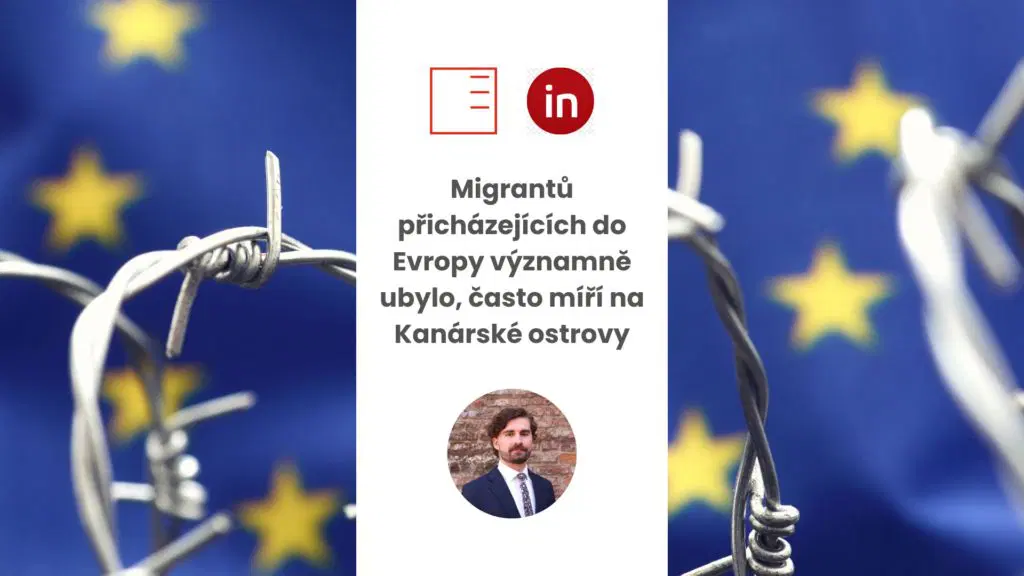
Novinky.cz | The number of migrants arriving in Europe has significantly decreased, with many heading to the Canary Islands
The European agency Frontex has released data on the number of migrants arriving in the European Union. This year, it recorded a third less migrants who have entered the Union illegally compared to last year. What are the reasons behind the decrease in migrant numbers? Did the failed agreement between the United Kingdom and Rwanda have an impact? Will the recently approved migration pact, which will come into effect in two years, also help? Viktor Daněk, Deputy Director of EUROPEUM Institute, commented on this for Novinky.cz.
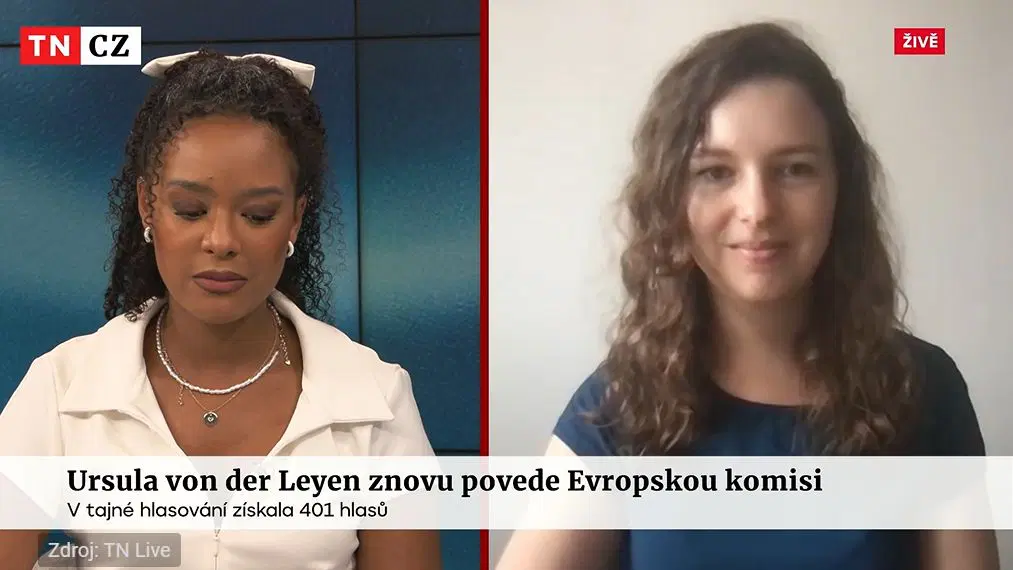
TN.cz | Ursula von der Leyen to lead the European Commission again
Ursula von der Leyen will lead the European Commission for another five years. This was decided by MEPs on Thursday, July 18. Von der Leyen received 401 out of 707 valid votes. What determined her election? And what are her main topics? Researcher Zuzana Krulichová from EUROPEUM Institute discussed this on TN.cz.
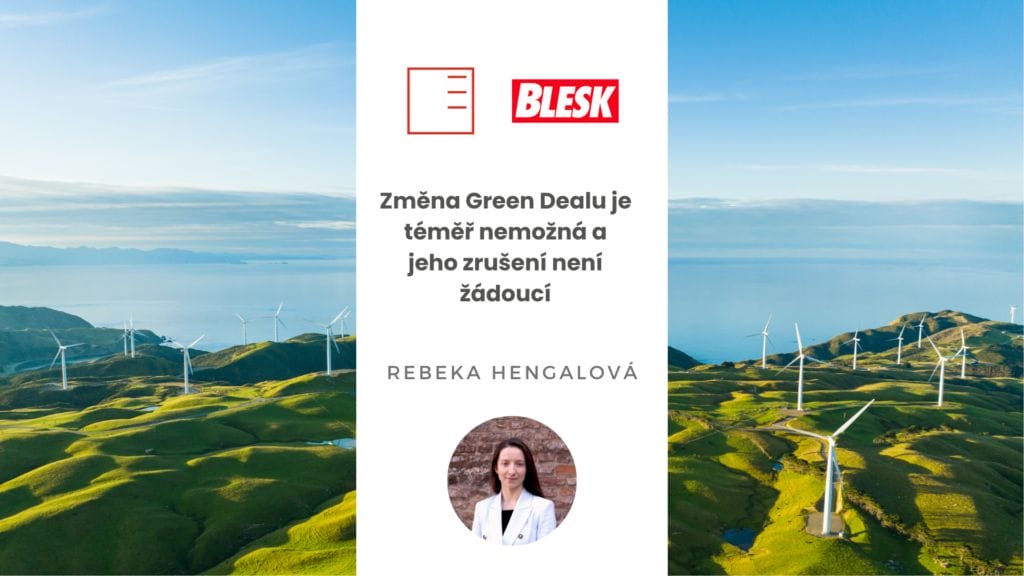
Blesk.cz | Changing the Green Deal is almost impossible and its cancellation is not desirable
The Czech government's press conference on Wedesday was delayed by nearly two hours due to discussions on the giant nuclear tender for the completion of Dukovany. The originally planned approval of the Czech Green Deal was postponed. Prime Minister Fiala emphasized that no new commitments would be adopted and the government would seek to mitigate the impacts of previously approved measures. However, as noted by researcher Rebeka Hengalová from EUROPEUM Institute for Blesk.cz, altering the Green Deal is nearly impossible and canceling it is neither feasible nor desirable.
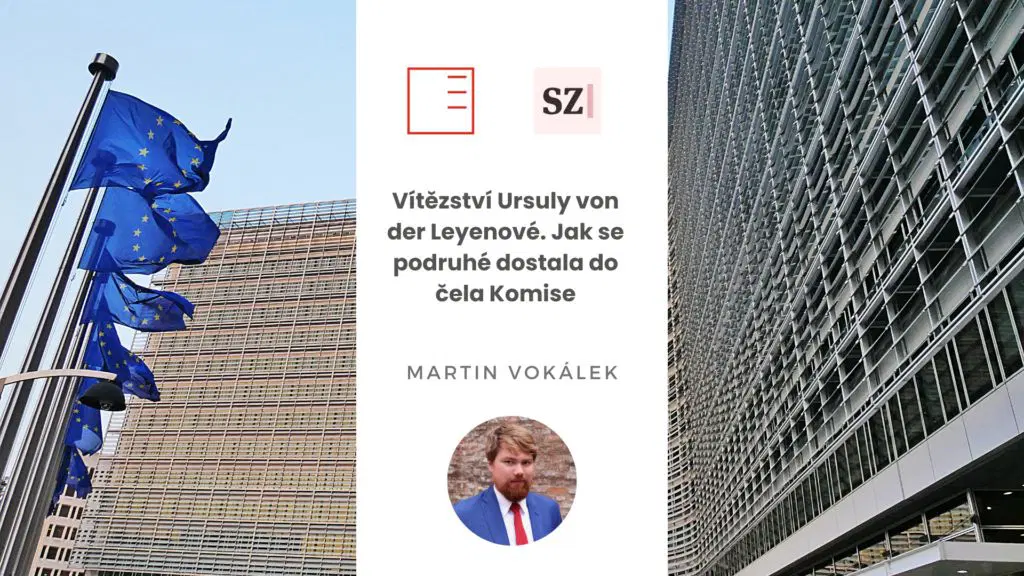
Seznam Zprávy | The victory of Ursula von der Leyen. How she became president of the Commission for the second time
Ursula von der Leyen has secured another five years at the helm of the EU executive. She received more support from MEPs in a secret ballot than five years ago. She succeeded despite leading the Commission through times of unprecedented crises. Martin Vokálek, Executive Director of EUROPEUM Institute, reviewed previous five-year term for Seznam Zprávy.

ČT24 | Von der Leyen re-elected as president of the European Commission
Ursula von der Leyen has retained her position as President of the European Commission. She received a total of 401 votes, significantly exceeding the required majority of 361 votes. The result was not as close as expected. What ultimately helped her achieve victory? And how difficult was it for her to negotiate support? Deputy Director and Head of the Brussels Office of EUROPEUM Institute, Žiga Faktor, commented for ČT24.
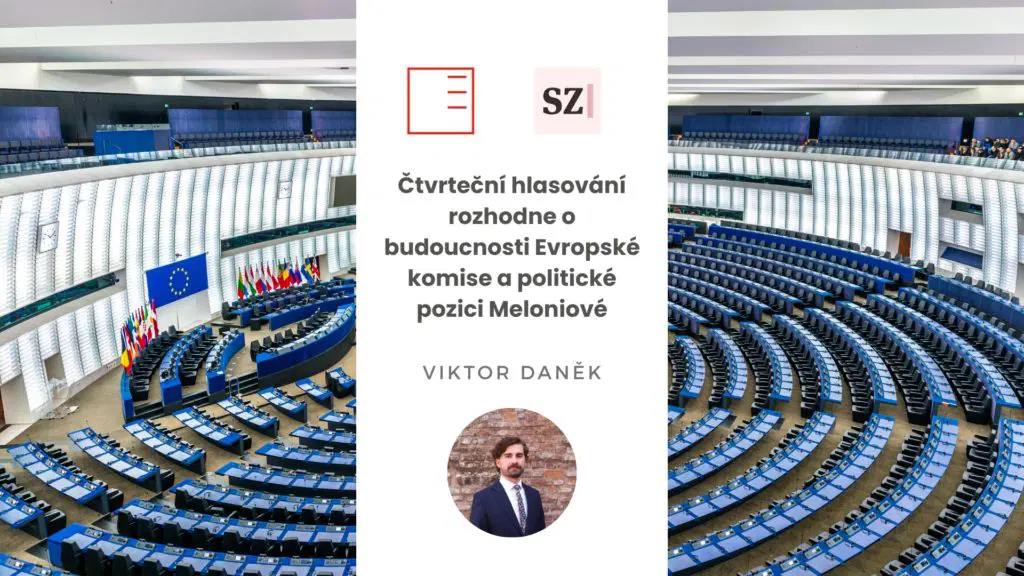
Seznam Zprávy | Thursday's vote will decide the future of the European Commission and Meloni's political position
Thursday's vote will determine whether the current head will continue to lead the European Commission. However, it will also be pivotal for Italian Prime Minister Meloni. She must either join the majority or risk ending up on the sidelines. Viktor Daněk, Deputy Director of EUROPEUM Institute, provided a comment on her goals for Seznam Zprávy.
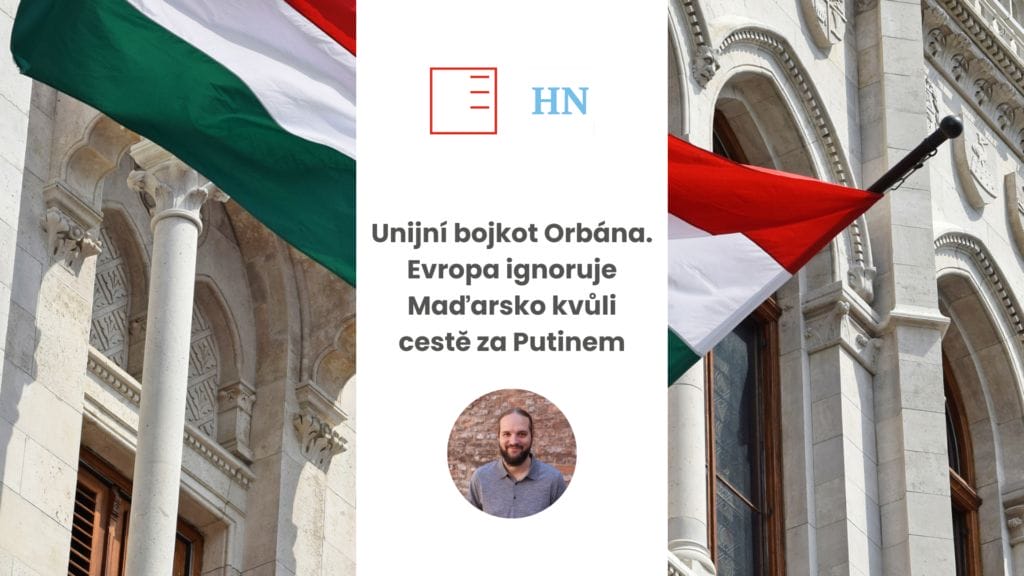
Hospodářské noviny | EU boycott of Orbán. Europe ignores Hungary for a trip to see Putin
Hungary may hold the EU presidency until the end of the year, but member state politicians plan to ignore meetings the country holds. This is in response to Hungarian Prime Minister Viktor Orbán's secret visit to Russian President Vladimir Putin, as well as an unscheduled call for a ceasefire issued to Ukrainian President Volodymyr Zelensky. Vít Havelka, a research fellow at EUROPEUM Institute, commented on the boycott for Hospodářské noviny.
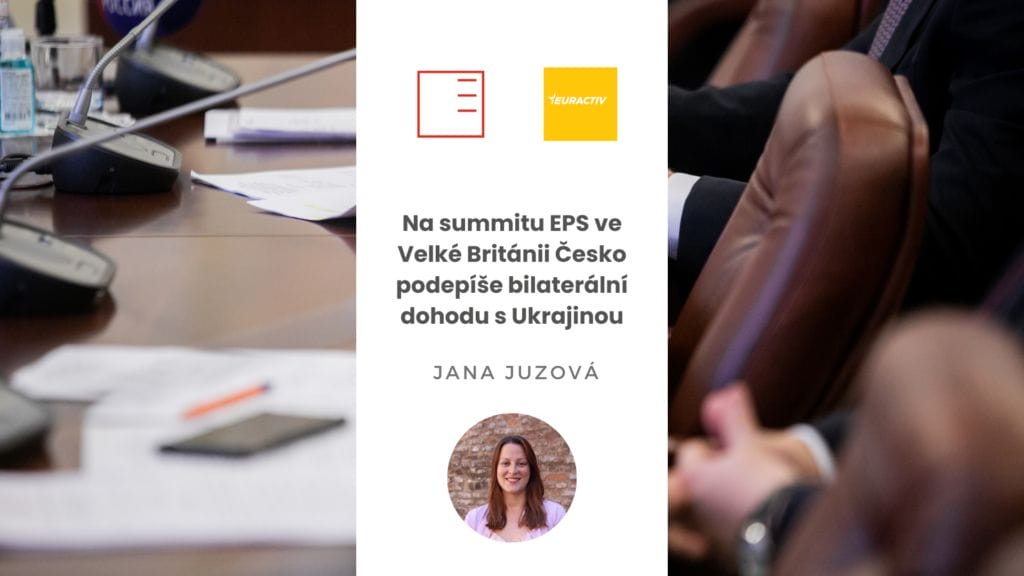
Euractiv.cz | At the EPC Summit in the UK, the Czech Republic will sign a bilateral agreement with Ukraine
The United Kingdom is preparing for a major summit of the European Political Community (EPC). After the Czech Republic, Moldova, and Spain, Britain is only the fourth hosting country. Among other topics, the states will discuss Ukraine and illegal migration. On a bilateral level, the Czech Republic will sign a security agreement with Ukraine. Jana Juzová, a researcher at EUROPEUM Institute, commented on the summit for Euractiv.cz.
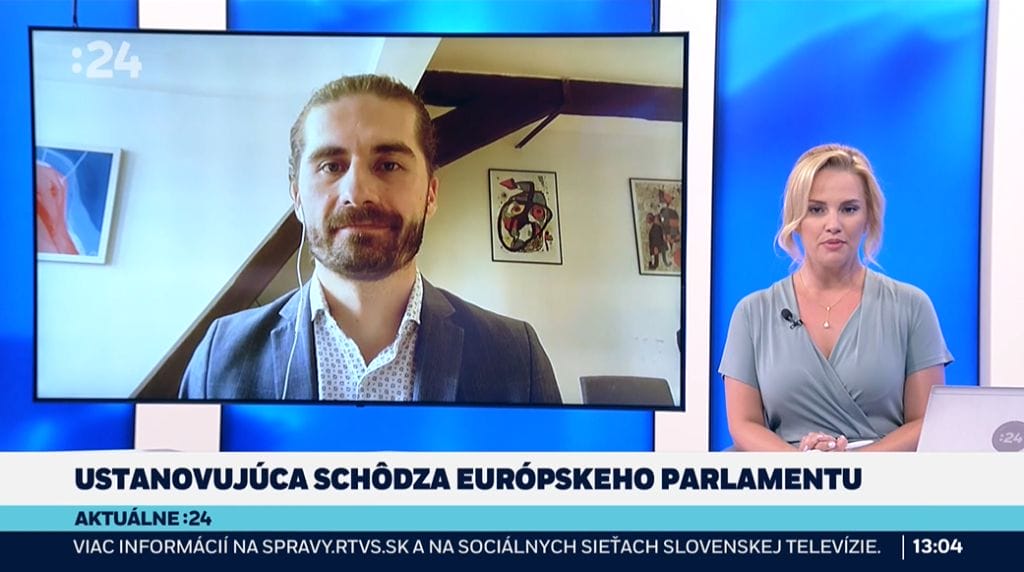
STVR | Constituent meeting of the European Parliament
Members of the European Parliament continue to assign themselves to various committees, familiarize with the agendas assigned to them, and have already started working. At the constituent meeting, the first discussion was on a new legislative proposal concerning Ukraine, during which MEPs expressed continued support for the country. Viktor Daněk, Deputy Director of the EUROPEUM Institute, commented for Slovakian STVR.
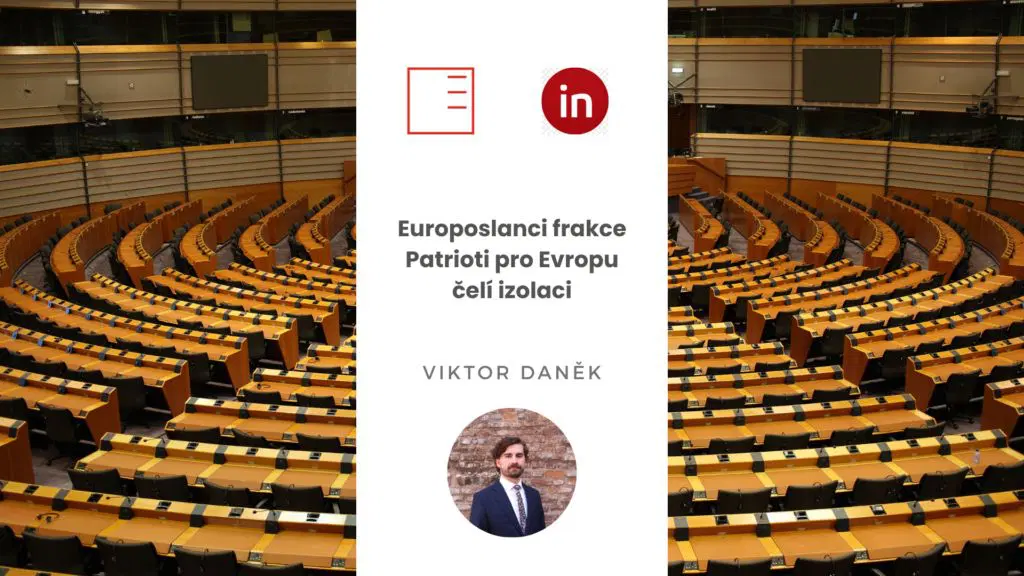
Novinky.cz | MEPs of the Patriots for Europe group face isolation
MEPs from the Patriots for Europe, including representatives of the ANO movement, face isolation in the European Parliament. They are unlikely to secure key positions, significantly limiting their influence on the legislative process. Other political groups are attempting to isolate far-right parties through a so-called cordon sanitaire, a measure already felt by Klára Dostálová, who was not elected Vice-President of the EP. Viktor Daněk, Deputy Director of EUROPEUM Institute, commented on the situation for Novinky.cz.
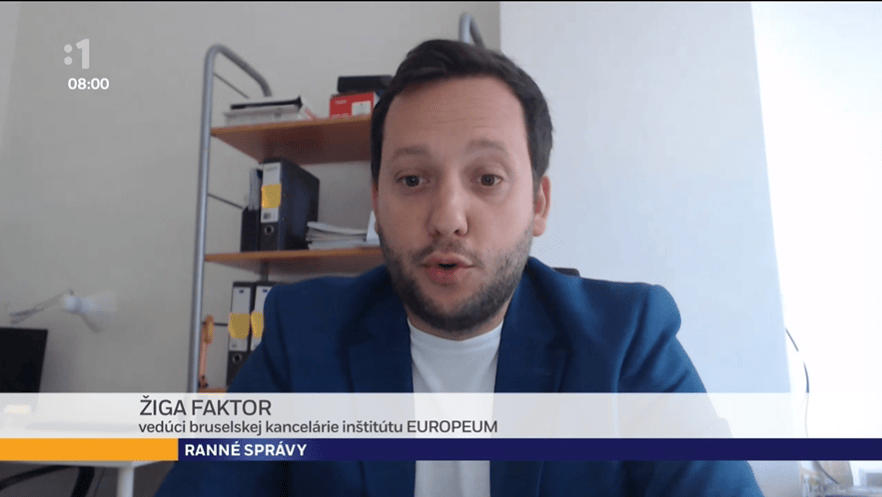
STVR | The first plenary session of the European Parliament in its new composition
The first session of the European Parliament after the elections is beginning. MEPs will elect the presidents of the European Parliament and the European Commission. How does the plenary session proceed? And what will be crucial during it? Žiga Faktor, deputy director and head of the Brussels office at EUROPEUM Institute, responds for Slovak STVR.
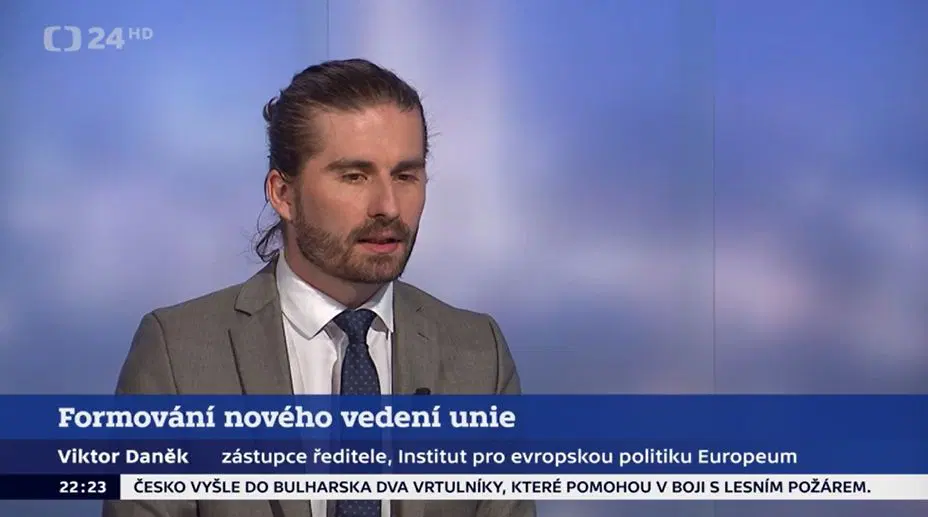
ČT24 | Division into political groups in the European Parliament
The Czech Republic has 21 MEPs in the European Parliament. The ANO movement has the most representatives, followed by the Spolu coalition. In the European Parliament, there were seven groups before this year's elections, but now there will be one more. The European People's Party remains the strongest, followed by the Progressive Alliance of Socialists and Democrats, and the Patriots for Europe. The new distribution of MEPs explained on ČT24 Viktor Daněk, deputy director of EUROPEUM Institute.